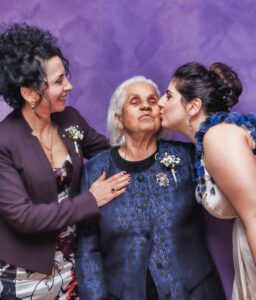By Barry Zimmer on November 26th, 2019 in Elder Law

These facilities are extremely expensive, and Medicare does not pay for living assistance of this nature. Medicaid will pick up the tab if you can gain eligibility, and this is why it should be on your radar when you are planning ahead for the eventualities of aging.
Medicaid Parameters
Since Medicaid is a need-based program, there is a limit on countable assets of just $2000, but some things that you may own do not count. Your home is not a countable asset, but there is an equity limit of $585,000 in 2019. There is no limit at all if a healthy spouse is remaining in the home.
An applicant can retain ownership of wedding and engagement rings, heirloom jewelry, and one motor vehicle. Other non-countable assets include household items and personal effects. Unlimited term life insurance is allowed, along with up to $1500 of whole life insurance.
In addition to the fact that there is no home equity limit for a healthy spouse, the program makes other concessions. There is a Medicaid Monthly Maintenance Needs Allowance that gives the independent spouse the ability to continue to receive income that is brought in by the person that requires long-term care.
The healthy spouse is also entitled to a Community Spouse Resource Allowance, which is equal to half of the shared countable assets up to a certain limit. This limit is $126,420 during the current calendar year, and there is also a minimum allowance of $25,284.
Gift Giving and the Look Back Period
With regard to the assets that do in fact count, you could engage in a process called a Medicaid spend down. For most people, this will involve giving gifts to loved ones that would be inheriting them anyway under different circumstances.
Unfortunately, you cannot find out that you need nursing home care today, give away your assets tomorrow, and qualify for Medicaid a few days later. This would not be in the spirit of the program, so there is a five-year look back period in place.
If you give gifts within five years of your application submission date, your eligibility would be delayed. For example, if you gave away enough to pay for 18 months of nursing home care, your eligibility for Medicaid would be delayed by 18 months.
Medicaid Estate Recovery
Though you can qualify for Medicaid even if you own a home, the program would be required to seek reimbursement from your estate after your passing. As a result, the home could be attached during this process.
Caregiver Child Exemption
To avoid the fate described above, if an adult child has been living in your home with you as a caregiver for at least two years, you can give the home to your child. The five-year look back period would not be applicable, and the home would be protected during Medicaid recovery efforts.
Attend a Free Seminar!
Our attorneys are holding some seminars in the near future, and you can obtain a great deal of useful information if you attend one of these sessions. They are being offered on a complimentary basis, but we do ask that you register in advance, because space is limited.
To see the dates and obtain detailed registration information, visit our seminar schedule page.

